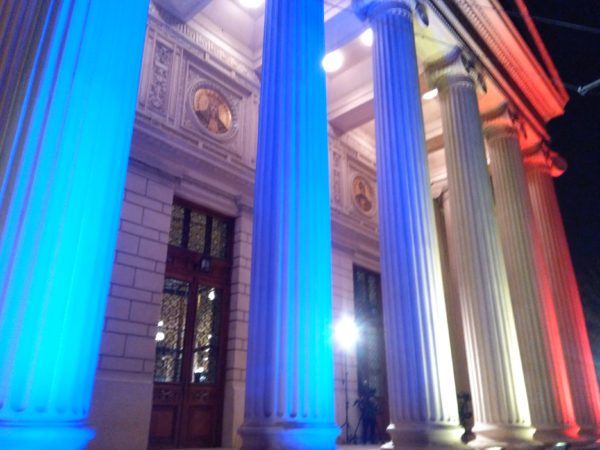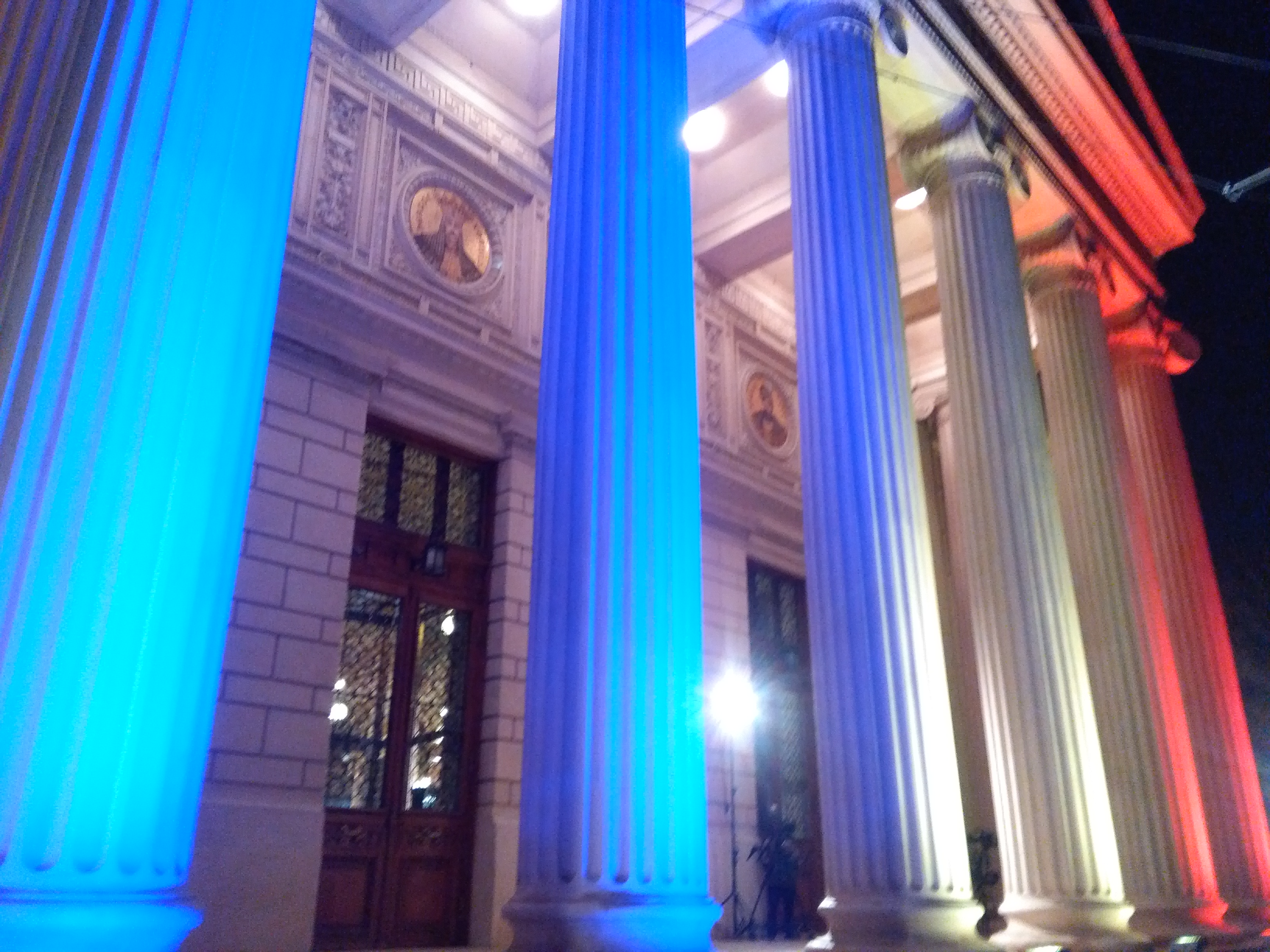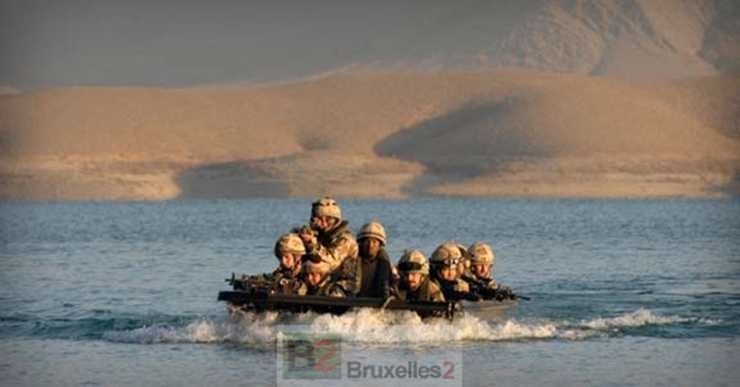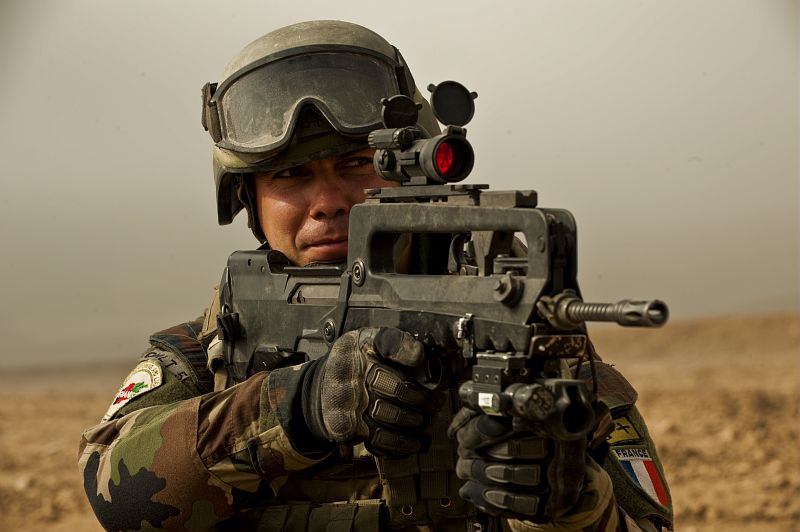A Romanian presidency… of all dangers
(B2) Romania takes over the Presidency of the European Union for six months. For the first time in its history. A real challenge

For its first presidency of the Council of the European Union, the country of Brancusi and Ionesco is served. The challenges are not lacking, the dangers too.
Shakes to expect
It is very easy to 'shoot' on sight a country that is taking its turn for the first time. But the timing is not obvious. It is even a historic moment. Between the great unknown of Brexit, European elections which risk seeing a brutal confrontation between anti and pro-Europeans, the expected renewal of European institutions, without forgetting the notable weakness of many European governments, there is no shortage of reasons for shocks.
A series of files to complete
The Romanian presidency will first of all have to complete a whole series of very diverse technical files. From the reform of the right to asylum (the famous Dublin mechanism) to the budgetary framework of future years, including copyright, the interoperability of 'interior' databases, the right to cabotage for truckers or the public prosecutor's office anti-terrorist European Union, the subjects are numerous, often very delicate. Time is counted. " We have only a few weeks ahead of us to find the necessary compromises says a young Romanian diplomat. In fact, all the compromises must be endorsed by the '28' before the European Parliament goes on leave in mid-April. That is to say for the Council, to complete everything before the end of February! (1). The nights will be short...
A professional team
Romanians can rely on a team of fairly square, experienced diplomats who know their files well underlines a European observer. But they will above all have to benefit from the good will of the other Member States. No need to hide it. The role of the presidency is to be the honest negotiator, to take everyone's opinions into account, then to seize the opportunity to achieve explains a European diplomat. " She can't decide anything on her own » . " We are not the boss of the European Union. We are here to facilitate consensus thunders Romanian Foreign Minister Teodor-Viorel Melescanu, an old wolf of national diplomacy.
The unexpected of crises
Bucharest will also have to deal with unexpected crises. Luxembourgers had to manage the migration crisis in 2015. The crisis over, the problem remains. The management of the smallest boat loaded with 50 people today becomes an insoluble puzzle. The latest epic of Sea Watch 3, the ship of the NGO of the same name, which remained off Malta for nearly three weeks, awaiting the goodwill of European states, proves it. " Romania took its part » by welcoming 5 survivors. " She will continue to do so confides Minister Melescanu to Sud Ouest.
A weakened justice
But the main danger for Romania is itself. The country has not quite digested the communist era of Ceaucescu. We do not come out unscathed from such an experience... Justice is not yet efficient. The desire to fire judges who are too embarrassing is still strong. The dismissal of the head of the National Anti-Corruption Directorate (DNA), Laura Codruța Kövesi, last July sent a very clear message to magistrates trying to exercise their profession with honesty. Corruption remains a national scourge. The filmmaker Cristian Mungiu told it very well in his film " Bachelor “, released in 2016.
Political bickering, a national sport
As for the political staff, he loves bickering. We must not forget that if Romania is located in Eastern Europe, " it's a latin country reminds us of a national diplomat. With some German-speaking twists, however. President Klaus Iohannis, a member of the National Liberal Party (right) and representative of this German minority, is at loggerheads with the coalition government, led by the social democrat Viorica Dancila, and his gray eminence, Liviu Dragnea. He also made the independence of justice the alpha and omega of his presidency. He thus refused, on Wednesday, to appoint Adina Florea to the post of chief prosecutor of the national anti-corruption directorate (DNA), considering her not very competent (2). This is not the first time, he had already refused the same nomination on November 21. The government intends to represent the candidacy... a third time.
The main threat of the presidency...
But the Dragnea problem remains. Caught red-handed twice, he managed to survive every time. Twice sentenced in 2016, to two years in prison suspended for electoral fraud, and in June 2018, to three years in prison for abuse of power, the leader of the Social Democratic Party always makes rain or shine. He appealed his last decision to avoid going behind bars (3). And since his position as president of the Chamber of Deputies, the former Maison du Peuple, where he reigns like an imperator in this pharaonic-looking building, Dragnea is literally rotting Romanian politics. This is today the main threat of the Romanian presidency of the European Union (4).
(Nicolas Gros-Verheyde, in Bucharest)
- Very short deadline because it is then necessary to obtain the approval of the European Parliament, in trilogue, in committee and in plenary.
- This is also the opinion of the Superior Council of the Judiciary (CSM) which issued a negative opinion at the beginning of November.
- « In all democratic systems, everyone is innocent until proven guilty. And everyone has the opportunity to prove their innocence defended the Minister of Foreign Affairs, somewhat embarrassed to defend the unjustifiable, in the face of pressing questions from the international press.
- Last night, during the official opening ceremony, L. Dragnea did not deliver a speech, leaving it to his deputy to do so (read: The rule of law does not trade. Tusk and Juncker admonish Bucharest).
long version of the article published in the daily newspaper Sud Ouest this morning



